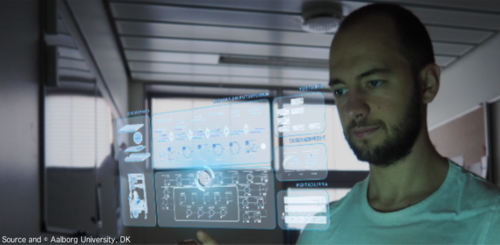Am 15.1.2020 hat Marco Nardello an der Universität Aalborg seine Promotion zum Thema „Enterprise Architecture for Digital Manufacturing – EA Models and an Automated Modeling Methods to Support Industry 4.0 Transformation” verteidigt. Einer der Gutachter war Prof. Kurt Sandkuhl von der Universität Rostock.
Kurzfassung der Arbeit (englisch):
Technological progress has allowed enterprises to collect large amounts of data on their products, processes, and services. This progress is part of the Industry 4.0 transformation. Due to this transformation, enterprises are likely to become better at using data to improve their products, processes, and services. However, to do so, enterprises need to redesign the ways in which they collect, structure, analyse, and share data, including the sharing of data across departments and with other enterprises. Transforming an enterprise and its processes in such a manner that data can be leveraged to improve processes, products, and services is challenging. Such a transformation requires that departments understand the processes of other departments and share relevant data. Enterprise architecture (EA) is a discipline that focuses on managing transformations involving an entire enterprise. It aims to effectively implement enterprise strategies by designing the way departments work to maximize coherency between departments. To implement an enterprise strategy, EA models an enterprise's current goals, processes, applications, and infrastructure and identifies the desired ones. Current EA models provide the starting point for redesigning enterprises to leverage data for improvement. However, there are two main challenges in using EA models in manufacturing. First, they are seldom used for modelling manufacturing products, processes, and resources. Second, EA models are usually created manually, which is inefficient, time-consuming, and error-prone. To redesign an enterprise in such a manner that it can leverage data, EA needs to overcome these challenges. This thesis sets out to develop EA models intended to support manufacturing to allow data to be used to automate the creation of EA models. These models leverage data from several systems to make information more accessible within an enterprise and support it in using data to improve its processes, product, and services. Building on six articles, this thesis contributes to achieving the following three objectives:
1. Exploring the use of EA models for manufacturing. Through the application of new standards related to Industry 4.0, EA models intended to model manufacturing products, processes, and resources are developed.
2. Leveraging data to create EA models for manufacturing. By improving on the few existing automated modelling methods, a new automated modelling method is developed for creating EA models based on data from manufacturing execution systems and enterprise resource planning systems.
3. Leveraging data to enhance EA models for manufacturing. Building upon the method developed for the previous objective, additional data and information (e.g. performance measurements from production lines and assembly documentation) are included in the automatically created EA models. As a result, the models can assist in monitoring the performance of manufacturing processes and thus facilitate their improvement.
These EA models and method were first tested at the Industry 4.0 learning factory at Aalborg University and thereafter among a number of participating manufacturing companies. Among the participating companies, the research conducted for this thesis was undertaken in particularly close collaboration with QualiWare ApS, an EA vendor, and several manufacturing companies. This thesis serves as a point of departure for researchers that aim to contribute to EA to support the Industry 4.0 transformation. The EA models and method presented in this thesis can be further applied and developed to better model manufacturing products, processes, and resources. In addition, the method presented in this thesis significantly improves the creation of EA models by leveraging data to overcome the challenge associated with manually developing such models. This thesis can also provide guidance for production managers who wish to improve the use of manufacturing data in their enterprises through employing EA models.

